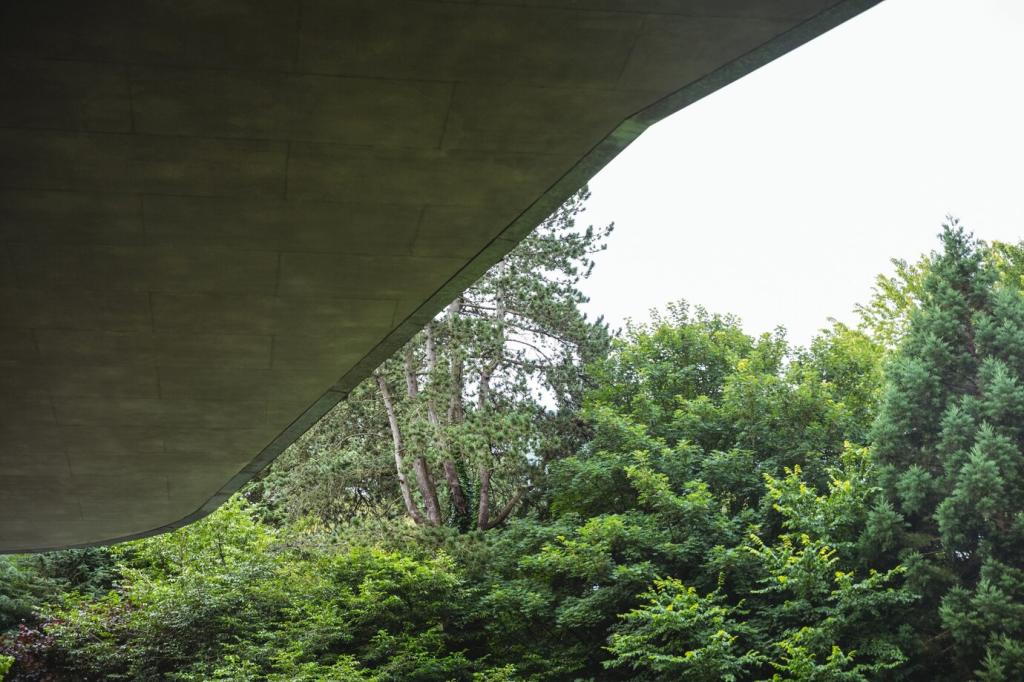Innovative Urban Sustainability Practices: Cities That Breathe, People That Thrive
Neighborhood Repair Networks
Pop-up repair cafes and full-time fix-it workshops keep electronics, bikes, and furniture alive longer, while teaching practical skills. A grandmother in Lisbon fixed her grandson’s skateboard and stayed to mentor others—community powered, waste reduced.
Material Passports for Buildings
Cataloging every beam, brick, and pane enables reuse when structures change. Cities experimenting with digital material passports are discovering second-life markets. Imagine deconstructing, not demolishing, and funding affordable housing with the savings and resale value.
Food Waste to Energy Loops
Anaerobic digesters turn market scraps into biogas, fueling district kitchens and waste trucks. Compost feeds urban farms, closing loops. Share your neighborhood’s best practice below, and help map invisible climate solutions others can replicate.
Nature-Based Solutions for Resilient Streets
Permeable pavements, rain gardens, and subsurface storage soak up downpours, preventing flooded basements and overloaded sewers. Residents notice cooler summer evenings, fewer puddles, and birds returning. Would your block volunteer to pilot a sponge corner?
Clean Mobility, Happy People
When groceries, schools, parks, and clinics are a short stroll away, traffic shrinks and time returns. A nurse in Paris swapped her second car for a cargo bike and gained two quiet hours with family daily.
Battery buses, smart depots, and renewable charging slash noise and fumes. Mechanics retrain, routes optimize, and riders notice cleaner air at stops. Tell us which corridor should electrify first, and we’ll feature community priorities next week.
Protected lanes and secure parking make scooters and bikes practical, not daring. A grandfather taught his granddaughter to cycle to the library on new lanes—freedom for her, health for him, and fewer cars for everyone.

Energy-Positive Buildings and Districts
Air sealing, insulation, and better windows deliver big comfort and savings before gadgets arrive. A retrofit co-op cut energy use nearly in half, then added heat pumps. Comment if your building wants a similar playbook.

Energy-Positive Buildings and Districts
When tenants pool rooftops and purchasing power, solar costs fall and benefits spread. One co-op funded panels with small monthly shares and now finances a community cooling center. Subscribe to learn their open-source agreement template.
Data, Policy, and Finance That Unlock Action
City climate dashboards paired with citizen air sensors make progress visible block by block. Residents spot hotspots and solutions faster. Share a dataset you wish your city published, and we’ll compile a community wishlist.

Community Stories, Culture, and Joy
Vendors swapped disposables for reusables, volunteers ran wash stations, and musicians played while plates clinked back for cleaning. Litter dropped to near zero. Would your favorite event trial a similar system this season?
Community Stories, Culture, and Joy
Solar canopies shade playgrounds, gardens feed cafeterias, and students monitor energy dashboards. A fifth-grade team cut classroom plug loads by thirty percent. Parents asked for take-home tips—so the kids wrote the guide.
Community Stories, Culture, and Joy
Reflective murals cool sun-blasted walls, while wayfinding art guides rainwater to bioswales. A local painter turned storm drains into fish and waves, sparking conversations about rivers underground. Nominate an artist to co-design your street.
